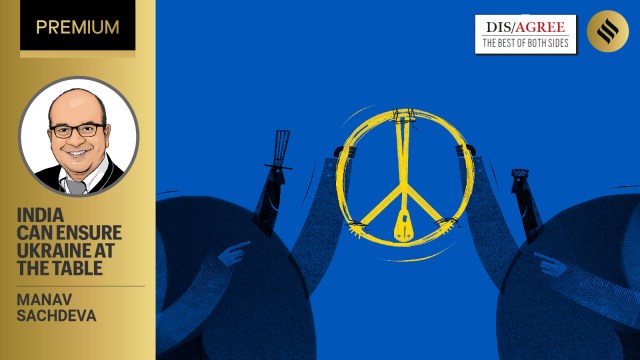
As the United States and Russia engage in high-level negotiations over Ukraine’s future — without Ukraine at the table — India cannot help but see a painful parallel to its own history. The exclusion of Ukraine from its fate is a stark reminder of how great powers have, time and again, decided the destinies of nations without regard for the people whose lives are at stake. The manner in which Ukraine is being sidelined in these discussions mirrors the colonial arrogance that defined the Partition of India in 1947, when Britain, in its hurried and careless retreat, drew arbitrary borders with little understanding of the human and geopolitical consequences. For India, the exclusion of Ukraine from these talks is more than just a diplomatic misstep — it is an act of profound historical injustice. The message is clear: Big powers dictate the futures of smaller nations, regardless of their sovereignty or self-determination.
If history offers any lessons, India knows that peace deals brokered without justice do not create lasting stability — they merely reward aggression. In his first administration, US President Donald Trump’s so-called “peace deal” in Afghanistan was nothing but a withdrawal agreement that handed the country back to the Taliban. The result? The erasure of two decades of progress, the collapse of Afghan democracy, and the return of a brutal, extremist regime that has taken away the freedoms of Afghan women, minorities, and dissidents. Rather than ensuring positive peace — one that secures justice, stability, and prosperity — Trump’s deal abandoned the Afghan people to an uncertain and regressive future.
Now, we see history repeat itself in Ukraine. Trump’s approach to Russia-Ukraine negotiations is not about peace — it is capitulation. His administration is reportedly offering pre-emptive concessions to Russia, excluding Ukraine from its own future, and rewarding an aggressor for violating international law. This is not a peace deal — it is a geopolitical surrender that will leave Ukraine vulnerable and Europe weakened.
India understands what it means to fight for dignity and territorial integrity. India’s independence struggle was a fight to reclaim its sovereignty from imperial powers who saw it as a pawn in their strategic games. Ukraine is in that same battle today — fighting for its right to exist as a sovereign state, for its people to live without fear, and for its territorial integrity to be respected. Just as Britain drew haphazard borders in India without understanding the communities they divided, the Trump administration is preparing to redraw Ukraine’s future without regard for the people who actually live there.
In practical terms, India can push for four strategic points through a combination of diplomatic channels, international forums, and bilateral engagements. First, India should use BRICS, IBSA (India-Brazil-South Africa), and SCO to push for a collective demand that Ukraine must be part of the negotiations. It should quietly pressure Moscow by warning that a flawed peace will lead to long-term instability, affecting Russia’s future standing.
Second, India can use its growing relationship with Saudi Arabia and the UAE, both of whom have engaged in peace efforts, to insist that Ukraine be present in all negotiations. As a major energy importer, India can work with Gulf states to signal that a stable Ukraine is critical for global economic security. Third, as a key voice in the UN General Assembly, Security Council debates, and G20 summits, India can publicly oppose any settlement that does not respect Ukraine’s sovereignty. Finally, India should use its major arms purchases from Russia and trade ties with the West as leverage to ensure a fair settlement.
A peace that does not include justice, accountability and strategic security is not peace — it is merely a pause before another war. By conceding Ukrainian territory to Russia, Trump is laying the foundation for another long-term conflict, just as Britain’s arbitrary partitioning of India laid the groundwork for decades of Indo-Pakistani tensions. India, with its deep history of fighting colonial injustice, cannot support a peace deal that is based on big-power negotiations at the expense of smaller nations. A just resolution must be based on Ukraine’s territorial integrity, the dignity of its people, and its right to a secure and independent future.
Anything less than this would not be peace — it would be a return to an era of imperialism, where powerful nations decide the fate of weaker ones without consequence. Just as India still lives with the wounds of Partition, Europe may find itself trapped in another century of conflict and instability if Ukraine’s voice is not included in determining its own destiny. The world, and India, must not let history repeat itself.
The writer serves as the global goodwill ambassador for President Volodymyr Zelenskyy’s office. He has worked for the UN and allied organisations